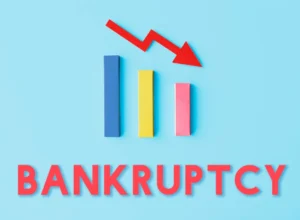 Bankruptcy can be a daunting prospect, but for individuals overwhelmed by debt, Chapter 7 bankruptcy can provide a fresh start. Understanding the ins and outs of Chapter 7 bankruptcy is crucial for those considering this option.
Bankruptcy can be a daunting prospect, but for individuals overwhelmed by debt, Chapter 7 bankruptcy can provide a fresh start. Understanding the ins and outs of Chapter 7 bankruptcy is crucial for those considering this option.
Chapter 7 bankruptcy offers a pathway to financial relief for individuals burdened by unmanageable debt. By understanding the eligibility criteria, the bankruptcy process, and the potential impacts, individuals can make informed decisions about whether Chapter 7 bankruptcy is the right solution for their financial situation.
Below, we outline everything you need to know about Chapter 7 bankruptcy, from its eligibility criteria to its potential impacts.
What is Chapter 7 Bankruptcy?
Chapter 7 bankruptcy, often referred to as “liquidation” bankruptcy, is a legal process through which individuals or businesses can discharge most of their unsecured debts. In Chapter 7 bankruptcy, a court-appointed trustee may sell non-exempt property to repay creditors, and remaining qualifying debts are typically discharged, providing the debtor with a clean financial slate.
Eligibility Criteria
To qualify for Chapter 7 bankruptcy, individuals must meet certain criteria:
- Means Test. The means test evaluates an individual’s income compared to the median income in their state. If the individual’s income falls below a certain threshold, they may be eligible for Chapter 7 bankruptcy.
- Financial Counseling. Before filing for Chapter 7 bankruptcy, individuals must undergo credit counseling from an approved agency within 180 days.
- Previous Bankruptcies. Individuals who have received a discharge in a previous Chapter 7 or Chapter 13 bankruptcy case may be subject to restrictions on filing again.
The Chapter 7 Bankruptcy Process
- Filing the Petition. The process begins with filing a petition for this type of bankruptcy in federal bankruptcy court. This initiates an automatic stay, halting most creditor actions, including collection efforts and lawsuits.
- Appointment of Trustee. Upon filing, a trustee is appointed to oversee the case. The trustee reviews the debtor’s assets and may sell non-exempt property to repay creditors.
- Meeting of Creditors. Debtors must attend a meeting of creditors, where they may be questioned by the trustee and creditors about their financial affairs.
- Discharge of Debts. If the trustee determines that the debtor’s assets are insufficient to repay creditors, qualifying debts are discharged, providing the debtor with relief from most unsecured debts.
Potential Impacts of Chapter 7 Bankruptcy
- Credit Score. This type of bankruptcy can have a significant negative impact on an individual’s credit score, potentially lowering it by hundreds of points.
- Asset Liquidation. Non-exempt assets may be liquidated to repay creditors, although exemptions may allow individuals to retain essential assets such as their home or car.
- Future Financial Opportunities. While this bankruptcy remains on a credit report for up to ten years, individuals can begin rebuilding their credit immediately after receiving a discharge.
Consulting with a qualified bankruptcy attorney can provide further guidance and support throughout the process.
Should you need further guidance, a bankruptcy attorney can provide you with valuable advice. If you are looking for such a service and reside in the Clearwater, Port Richey, Lakeland, or Tampa, FL area, call Weller Legal Group. They can help you file for bankruptcy and assist you when you are going through financial difficulties.
Picture Credit: Freepik
